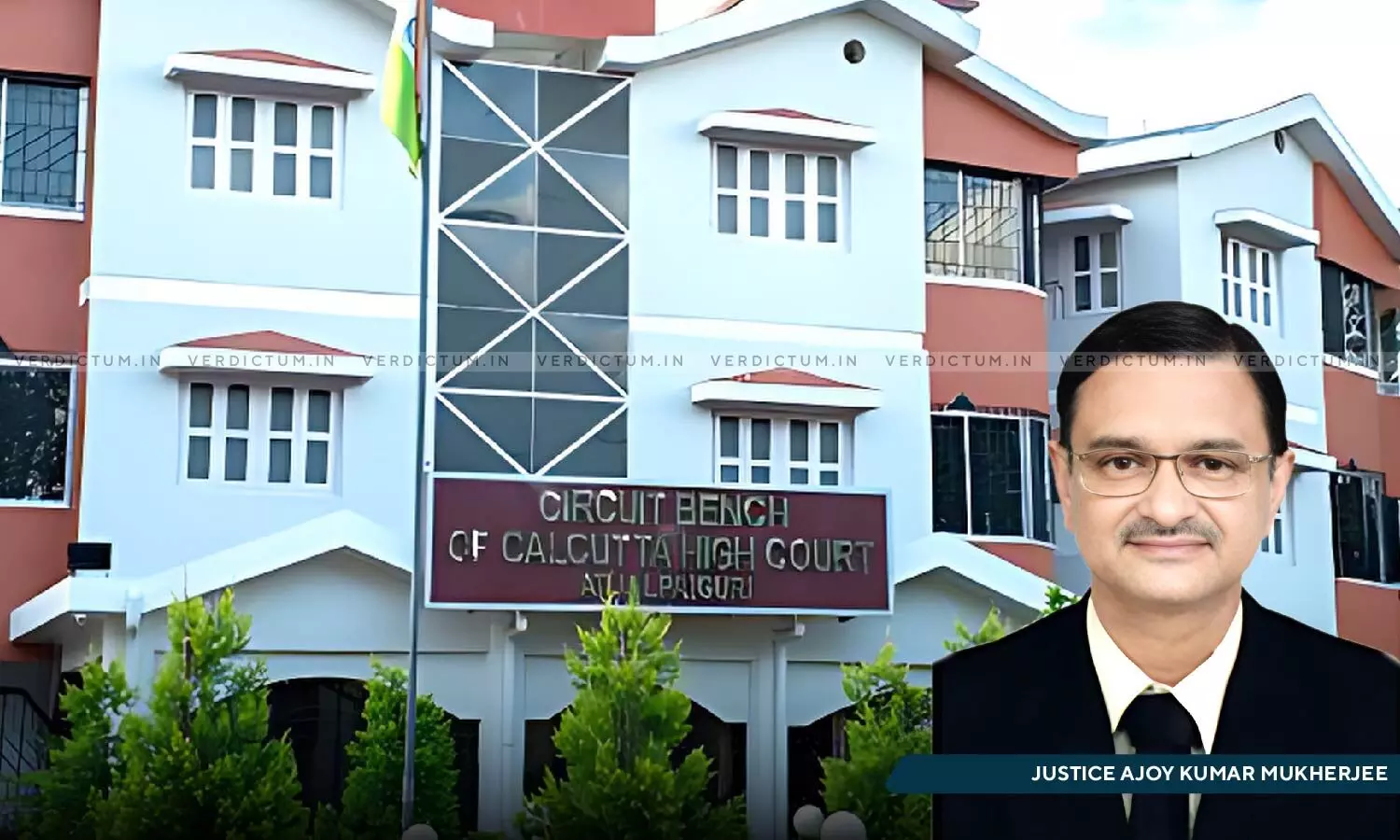
Justice Dr. Ajoy Kumar Mukherjee, Calcutta High Court
Upon Registration of Complaint, Court Has To First Issue Notice to Proposed Accused Persons: Calcutta HC Explains Procedure U/S. 223 BNSS
 |
|The Calcutta High Court lays down the procedure that needs to be followed on receipt of a complaint, in view of section 223 BNSS.
The Calcutta High Court, while laying down the procedure to be followed under Section 223 BNSS, observed that once a complaint is filed, after registering the same, the Court has to issue a notice to the proposed accused person.
The Calcutta High Court dealt with the question of whether under the proviso to section 223 (1), the examination of complainant and/or his witnesses, if any, is to be made prior to giving the accused an opportunity of being heard and for that matter before taking cognizance. In the instant case, the accused was not afforded an opportunity of being heard before the cognizance was taken.
A Bench of Justice Dr. Ajoy Kumar Mukherjee observed, “Therefore, the procedure that needs to be followed on receipt of a complaint, in view of section 223 and concerned relevant provisions under the BNSS, would be as follows:- Once, a complaint is filed, after registering the same, the court has to issue a notice to the proposed accused person/persons…”
Senior Advocate Mr. Ayan Bhattacharjee represented the Petitioners, while Advocate Sabyasachi Roy Chowdhury represented the Opposite Party.
Case Brief
The opposite party filed a complaint against the petitioner alleging commission of offence punishable under sections 115(1) /115(2) /118(1) /117(2) /126(1) /329(3)/351(2)/351(3) of the Bharatiya Nyaya Sanhita, 2023.
The Petitioner contended that the CJM took cognizance straightway on perusal of complaint and transferred the case for disposal in contravention of section 223(1) of BNSS. It was submitted that the Petitioners, alleged accused in the case, were not afforded an opportunity of being heard before such cognizance was taken and therefore, the said orders by which the cognizance was taken and the process was issued ought to be set aside, since the same suffers from gross illegality and are non-est in the eye of law.
While the opposite party contended that there is provision regarding giving accused an opportunity of being heard before the cognizance of an offence is taken by the Magistrate. A comparison was also drawn between Section 200 CrPC and Section 223 BNSS.
Court’s Analysis
The primary issue before the Court was whether under the proviso to section 223 (1), the examination of complainant and his witnesses, if any, is to be made prior to giving the accused an opportunity of being heard and for that matter before taking cognizance.
While referring to decisions of various High Courts, including High Court of Karnataka and Kerala, the Court opined that an unanimous view has been taken that the proviso to section 223(1) is compulsory in nature and any order taking cognizance in complete disregard to the provisions of BNSS has been held to be illegal.
Further, the Court explained that the term ‘cognizance’ has not been defined in BNSS but it means application of mind for proceeding further in a broad way.
The Court laid down the following procedure:
"(a) Once, a complaint is filed, after registering the same, the court has to issue a notice to the proposed accused person/persons;
(b) Such notice may be served by way of registered post with acknowledgement due and/ or through electronic mode under the scheme of BNSS as envisaged in chapter VI-A.
(c) In such notice, it has to be mandatorily mentioned that the purpose of such notice is to provide a right of hearing at a precognizance stage. The notice must also incorporate that the proposed accused may either appear by person or through his lawyer. The notice must also indicate that the proposed accused may avail of the facilities of legal aid in terms of the provisions under the Legal Services Authorities Act, 1987, if he so qualifies;
(d) Once in terms of such notice, an accused appears in person or through his lawyer, pre-cognizance hearing has to be conducted. The result of such hearing has to be communicated to both the parties.
(e) In case despite hearing, the learned Magistrate proposes to take cognizance, the accused will have no further participation in the proceeding till issuance of process under section 227 of the BNSS.
The Court also highlighted that the preamble of the BNSS which replaces the Code of Criminal Procedure 1973 aims to consolidate and amend the law relating to Criminal Procedure. Therefore, while interpreting BNSS as a consolidating statute judicial decisions on previous statute are to be taken into consideration, as the parliament must be aware of the decisions of the courts in the meantime."
Therefore, the order in question was set aside and remanded the case back to the lower court to follow the mentioned procedure.
Accordingly, the Criminal Revision was disposed of.
Cause Title: Kaberi Dey & Ors. V. Sourav Bhattacharjee (Neutral Citation: 2025:CHC-JP:104)
Appearance:
Petitioners: Senior Advocate Mr. Ayan Bhattacharjee, Advocates Mr. Shounak Mondal and Mr. Suman Majumder
For the Opposite party : Advocates Mr. Sabyasachi Roy Chowdhury and Ms. Priya Chakraborty
Click here to read/download Judgment